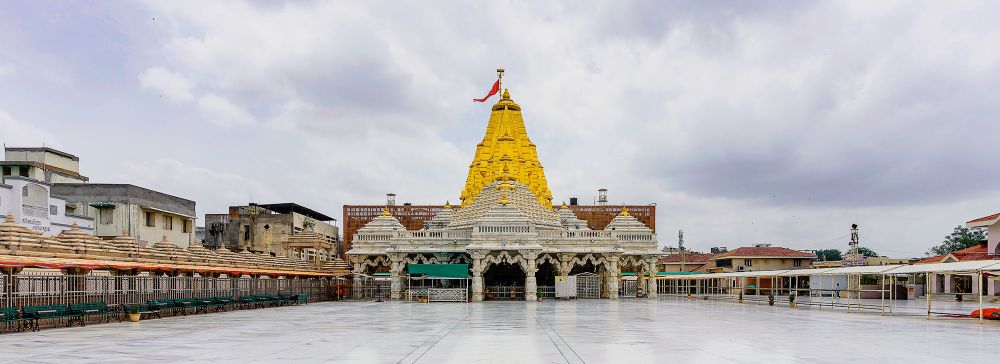

Ambaji, a small town in the Banaskantha district of Gujarat, India, is a significant pilgrimage destination revered for its ancient temple of Goddess Amba, also known as Ambaji. The historical roots of tourism here can be traced back to age-old traditions and religious practices that hold this place in high regard among devotees.
The history of Ambaji is deeply embedded with spirituality and devotion. The region's connection to divine worship dates back to prehistoric times, and the Ambaji temple itself is believed to be more than thousands of years old. The town is part of the 51 Shakti Peethas, where, according to Hindu mythology, the heart of Goddess Sati fell. Due to its mythological relevance, the temple has been a center of pilgrimage for many centuries.
Over time, Ambaji has witnessed an increase in pilgrim footfall. The region came into prominence as infrastructure developed to facilitate the growing number of visitors. The construction of better roads, accommodation facilities, and amenities has turned Ambaji into a well-maintained pilgrimage center. The annual Bhadrapadi fair, which takes place during the full moon night in the month of Bhadrapada, attracts millions of pilgrims to this sacred town each year.
Tourism in Ambaji is deeply influenced by its cultural and religious festivities. The variety of rituals and celebrations throughout the year keep the tourism here vibrant and continuous. Major festivals such as Navratri, Diwali, and Purnima (full moon nights) draw large crowds, with special ceremonies and cultural events arranged for the pilgrims.
With the advent of technology and increasing global connectivity, Ambaji has seen a shift in tourism trends. Social media and online platforms have made this pilgrimage site more accessible to a wider audience. Eco-friendly initiatives are being adopted, and facilities are being developed with a focus on sustainability to preserve the town's natural and spiritual heritage.
Digitalization of services allows for online darshan bookings and virtual tours, catering to those unable to visit in person. Alongside traditional tourism, the local administration also promotes cultural and spiritual tourism by organizing events that showcase the local art, music, and dance forms.
The tourism sector in Ambaji is poised for further expansion. Plans to develop the town into a more tourism-friendly destination while still preserving its spiritual essence are ongoing. The introduction of better connectivity, hospitality services, and tourist information centers is part of this development drive. This delicate balance ensures that while promoting tourism, the town's serenity, and the sanctity of the temple remain undisturbed.
For travelers seeking a spiritual journey or those interested in experiencing Indian religious culture, Ambaji represents an authentic and enriching destination, offering not only profound religious significance but also a fascinating insight into India's rich cultural tapestry.